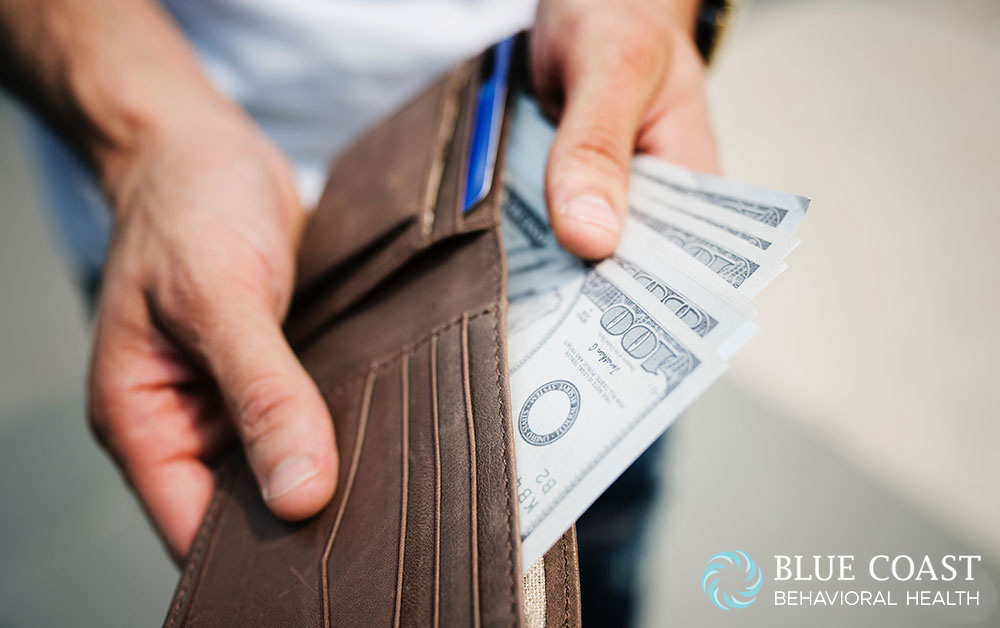Addiction is expensive, amirite?! Depending on what their drug of choice is and how much they’re using, an addict can be spending hundreds to thousands of dollars a month on chasing the high. And because achieving that high is the main — if not the only — priority, managing finances becomes pretty straightforward: all finances go toward supporting the addiction.
Hop over to the other side of the fence (hello, sobriety!) where managing finances in recovery looks completely different. A recovered addict will see a lot more of their money because they’re no longer spending copious amounts chasing the high. However, there are also more responsibilities, such as supporting a family, paying bills, and setting goals.
Managing finances in recovery can get overwhelming, especially if you’ve been a slave to the addict mindset for so long. These tips can help make the task more manageable.
1. Track Your Spending by Writing Everything Down



Those in recovery are typically taught to keep journals. Writing down your emotions, progress, and activities helps you remember how the day’s events made you feel. It’ll give you a better idea of what made you feel good, what you accomplished, and what was challenging for you. It’s a great way to move forward one day at a time while setting yourself up for a positive tomorrow.
Writing everything down while managing your finances works in a very similar way. The only way to really feel like you have a good grip on your financial situation is to keep track of it. Writing down how much money is coming in, how much is going out, and what your financial goals are will give you more legitimacy and control when managing finances.
2. Tackle the More Manageable Pieces First



Instant gratification is a struggle for many adults. While we understand that most things take time, it can get difficult to trek on without fast results. Addicts especially struggle with this. Addiction is all about instant gratification, after all.
Instant gratification is pretty much a stranger to money management. Saving money, paying off debt, waiting for paychecks . . . it all takes time. A good way to go about managing finances in recovery is to tackle the tasks that are more manageable first. In addiction, your brain was essentially wired to only work for that instant gratification (read: achieving that next high). So, managing finances will be much easier if you can see tangible changes happening. If your financial plan allows for it, try paying off your smaller debts first or working towards those smaller savings goals. Checking those smaller tasks off your financial to-do list will help strengthen your resolve and motivate you to keep going.
3. Practice Conscious Spending



It’s really easy to fall into spontaneous spending in recovery. Addicts live in a world of impulsivity and chaos while recovery requires structure and stability. It’s not uncommon to miss the feelings that come with being impulsive and living on the edge, especially in early recovery. Consequently, responsibly managing finances can take a backseat to filling those urges.
Buying new things commonly produces a rush for people. And addiction is expensive, so you’re likely seeing a lot more of your money in recovery, which makes it easier to justify spending it. Often, those purchases are necessary. But it’s very important to really think about what you’re spending your money on. Make sure you’re buying things you need and not just replacing the rush of drinking or using with the rush of spending.
4. Be Proactive in Managing Stress when Managing Finances



While you’re likely (and very understandably) ecstatic about seeing more money in recovery, dealing with money can also be a relapse trigger.
During treatment, your sole priority is to focus and work on your recovery. For that to happen, food, housing, and transportation are typically all taken care of by the treatment facility. So, when treatment is completed, that transition back to the “real world” can be a huge shock, especially because your previous “real world” revolved around your drug of choice. Navigating your job, paying bills, and supporting a family can all be huge stressors. Struggling with these stressors can quickly turn into a downward spiral with both your finances and your sobriety in shambles. So it’s very important to take steps to manage stress while you’re in recovery.
Seeing a therapist or counselor regularly to manage stress is a great idea. But if you don’t feel like a therapist is necessary, there are a variety of other proactive moves you could be making. One major method is to take some time at least once a week for yourself to focus on a hobby or relaxation. No thinking of or talking about works or bills!
The most important thing to remember when managing finances in recovery is to be 100% honest with yourself. Most people experience feelings of guilt, shame, and stress when dealing with their finances, regardless of whether they’re in recovery or not. And that’s okay. These tips can help you overcome that and set good habits. Managing finances takes work, but the work pays off — literally and figuratively!
If you or someone you know is seeking help for substance abuse, our addiction counselors are available 24/7: 714-203-2708*
*all calls are answered and operated by New Start Recovery




